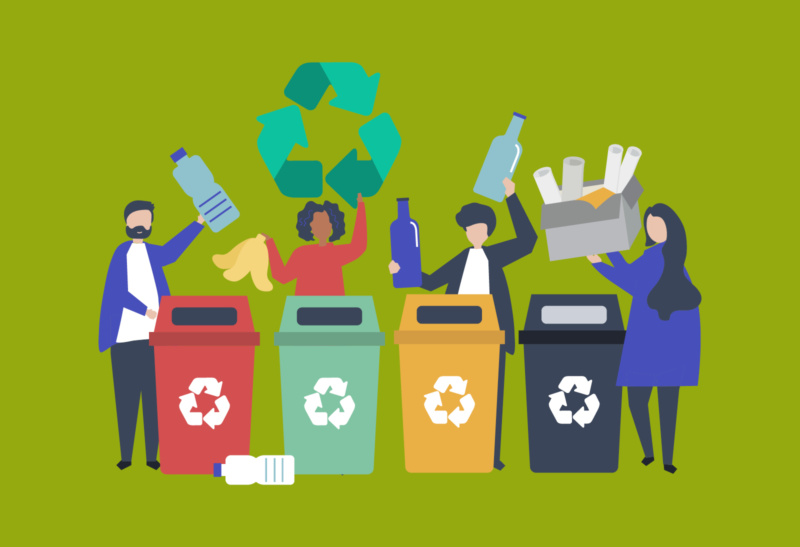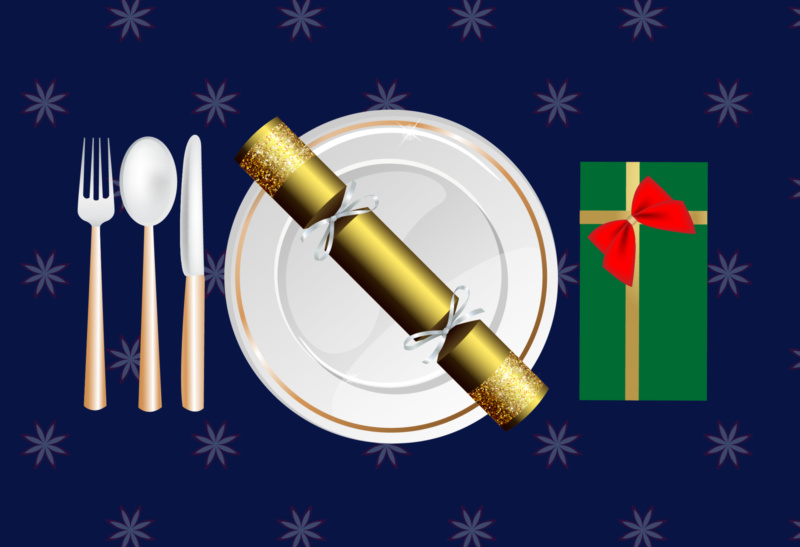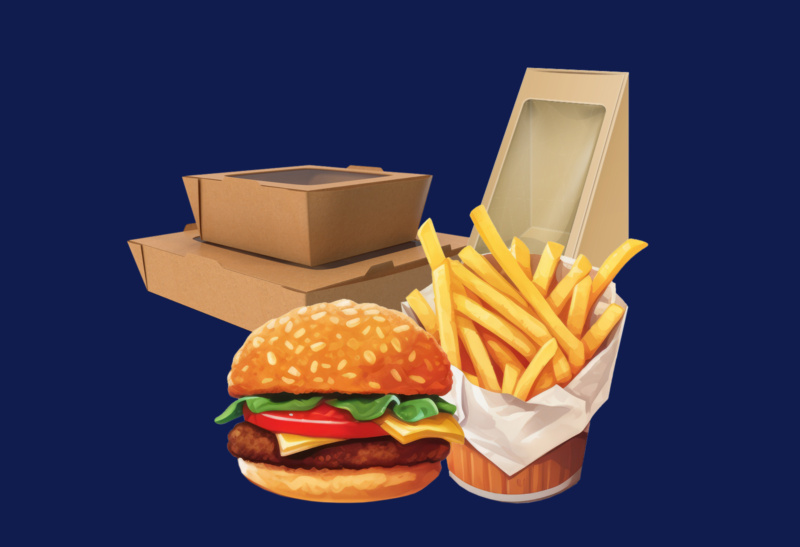This is a fascinating topic as there are so many variables involved when determining what effective recycling is! If you have been here before you might have read my previous blog, ‘Can you recycle paper cups?’, helping you to demystify how we can reduce the waste impact our loved takeaway cup can have.
We may not have all the answers for how to handle waste but as we continuously learn and work with our suppliers, we will take you on the journey and help you navigate the world of responsible waste management.
Cups
You might be aware that traditional paper cups are notoriously hard to recycle, due to their PE (polyethylene) inner lining serving as a moisture barrier, but this makes recycling trickier as the two materials must be separated. The current estimated number of cups in circulation each year in the UK is thought to be 3.2 billion, according to research conducted for Wrap, a charity, by Valpak.1
However, a year later after my previous blog on cups, I am pleased to say there is now a solution for all types of hot cups whatever the lining used on the cup.
This is by using a specialist cup recycling waste collector. We have partnered up with co-cre8 to provide an end-of-life solution for customers seeking a transparent and auditable solution to recycle paper cups.
How it works? Paper cups are collected, weighed, baled and sent for onwards recycling in the UK. The type of paper cup determines which recycling facility the cups will be sent to, but rest assured that all cups are recycled and given a second life in new products!
Getting a solution in place for your cups now is a good idea as DEFRA UK have proposed a Mandatory Take Back Scheme legislation, to be implemented in 2025.
In partnership with Vegware we have also launched a first to market hot cup with no lining! The Nourish Hot Cup is made from only fibre, has no dye, no added PFAS and can be placed in any waste bin – home and industrial composting as well as mixed recycling!
We know conscious consumerism is a hot topic, in fact 1 in 5 consumers say that sustainable packaging would encourage them to buy from one takeaway/delivery venue over another2.
Top tip: If you are recycling or composting your paper cups, shout about it so your customers are aware! It is a fantastic way to drive footfall and ensure repeat custom.
For example, use clear signage of where the customer needs to place their cup when they are finished with their drink, and a good idea is to provide details of what products are created with the cups being recycled, which could be a water bottle or note pad that you can sell in your venue.
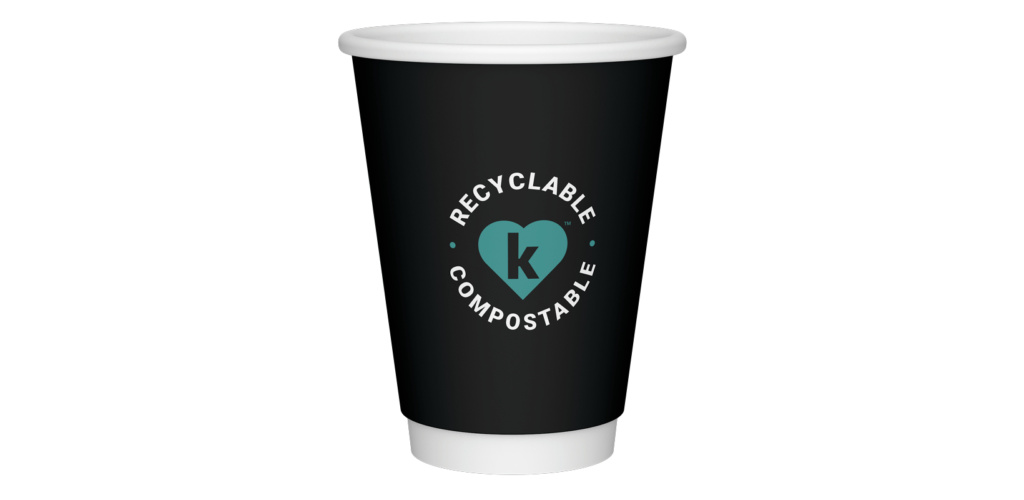
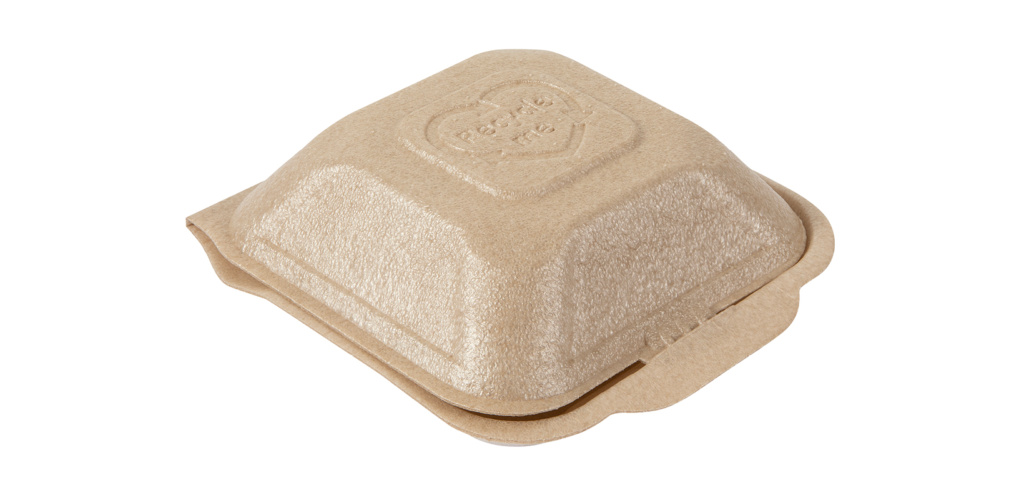
Food packaging
Everyone loves the word recyclable but many of us are skeptical about whether the products actually will get recycled following the news stories a few years ago about the UK shipping its plastics to China!3 All of the single use food-to-go packaging that we offer to our customers is either recyclable or compostable, now the jury is out regarding which is better!
Both options play an important part in contributing to a lower waste/circular economy when done correctly and can reduce what we send to landfill.
Benefits and differences between recycling vs composting
| Recycling | Composting |
| Recycling is for glass, plastics and aluminum | The natural breakdown of organic matter over time |
| Involves separating waste and processing it (mechanically or chemically) which can be hard to do, for example plastics can be too small to recycle, contaminated with food or made of mixed plastics | Even if it’s not composted, using certified compostable packaging is still a good option as it’s not made from fossil fuels like conventional plastic packaging, and secondly it’s made from renewal materials, like corn and sugarcane |
| Gives a second life to material and reduces the need to create virgin material | Reduces food waste as packing and food waste can all go in one bin to be commercially composted |
| Not all materials can be endlessly recycled and end up in landfill | Creates nutrient-rich fertiliser that can be used to grow more plants and on farms |
| Reduces carbon emissions and saves energy | Improves agriculture as composting can create healthy soils, which in turn promotes higher yields of agricultural crops |
| May be a more viable solution as there are more recycling facilities available in the UK | Reduces methane emissions compared to landfill |
| What you can and can’t recycle differs depending on the area and your local waste provider | Majority of compostable packaging requires an industrial composter which we have limited facilities in the UK |
We would always recommend working with your waste provider to recycle effectively, find the best recycling solution and decide on the product range based on this. Recycling for materials like foil, plastic and glass are well established and if you have a composting facility near you this can be a great solution.
Compostable food packaging is designed to be recycled in an industrial composting facility together with food waste. That means there’s no need for sorting – everything can be composted together without removing the ketchup and leftover chips.
An extra bonus is that once food and disposables share one bin, other dry recycling bins are cleaner and easier to recycle.
Speaking to Kelly Falconer – Head of Marketing from Vegware – she says:
“Conventional food packaging products are not recyclable because they are made of mixed materials and are contaminated with food. At Vegware we do not advise our customers to recycle our products with dry mixed recycling. Instead, we work with our customers in closed environments to find a route to compost used Vegware products and food waste.”
A closed environment is where the packaging is not taken out of the venue; this could be at a festival, in an office environment or at a conference centre. Read about how the Royal Opera House and Glasgow Science Centre have achieved a closed loop with Vegware here.
Don’t be a ‘wishcycler’4 – trying to recycle with the hope it will get recycled correctly. This can cause contamination and a lot of disruption such as slowing down the recycling process and increasing recycling costs.
Always check with your waste provider of what can and cannot be recycled, in order to recycle effectively. As a general rule rinse everything, ensuring it is free of food or tear off the greasy sections, with the exception of compostable food packaging.
Top tip: remember that not everything can be recycled; this depends on the set up in your area. Always check with your waste provider and ensure staff are fully aware as to what they can and cannot recycle as this won’t be the same as what they can do at home.
Having multiple bins and clear signage helps with sorting out waste correctly!
Single use plastic ban
Sometimes legislation is needed to change behaviour. The single use plastic ban came into force October 2023 to tackle problematic food packaging that is hard to recycle – plastic disposable cutlery, plastic stirrers, plastic straws and EPS food containers, plates and cups.
Since then we have seen a lot of innovation from suppliers. We now have EPP (expanded polypropylene) food packaging that unbelievably uses air to create a foam effect that is easily recyclable alongside other plastic waste and has no added PFAS.
Read more about no added PFAS here: What is the future of grab and go packaging?
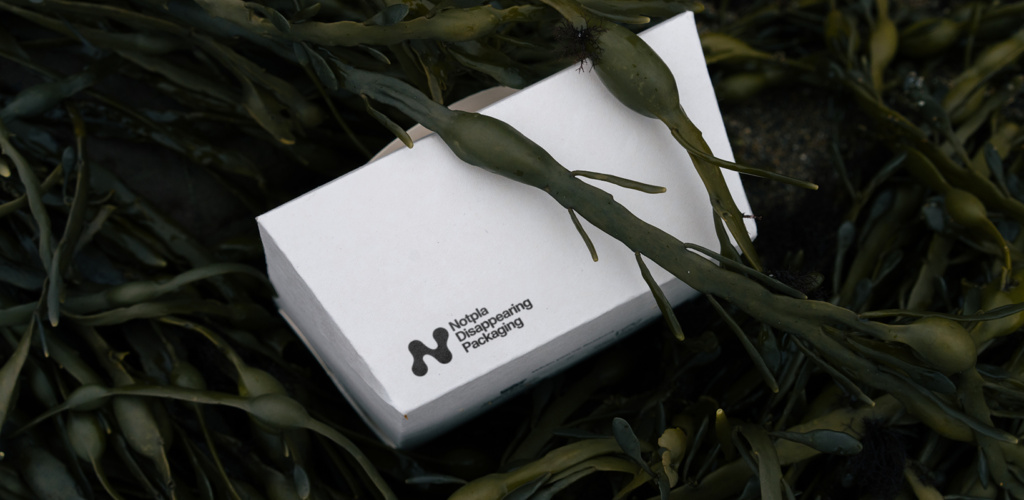
Another innovative supplier is Notpla who uses seaweed as a material to line its food packaging, acting as a leakproof barrier similar to plastic. As it has a natural lining, it means the packaging biodegrades naturally and is both home compostable and recyclable, leaving no harmful traces behind at the end of life.
And if the packaging doesn’t reach the bin, which we know can happened, it still biodegrades in nature in just 4 – 6 weeks, without the need for special conditions, making it an easy solution regardless of your waste facilities.
Read more about seaweed packaging here: What is the next generation of food packaging?
Prince William is an advocate of these products and Notpla won the Earthshot Prize in 2022. Watch him serve burgers in Notpla boxes with Sorted Burgers:
Stroodles – edible packaging
Edible packaging? I hear you say. We have partnered with Stroodles whose ethos is conscious consumerism and minimising waste. They have developed a range of packaging that is edible after use and is 100% biodegradable.
Straws are made from rice, bowls from 100% wheat bran, the spoon and stirrer are like eating a biscuit and the cup is made from wafer. What a fun way to serve your food and get consumers talking!
Remember to include an allergen warning for anything that you are serving in the cups and bowls as these contain gluten.
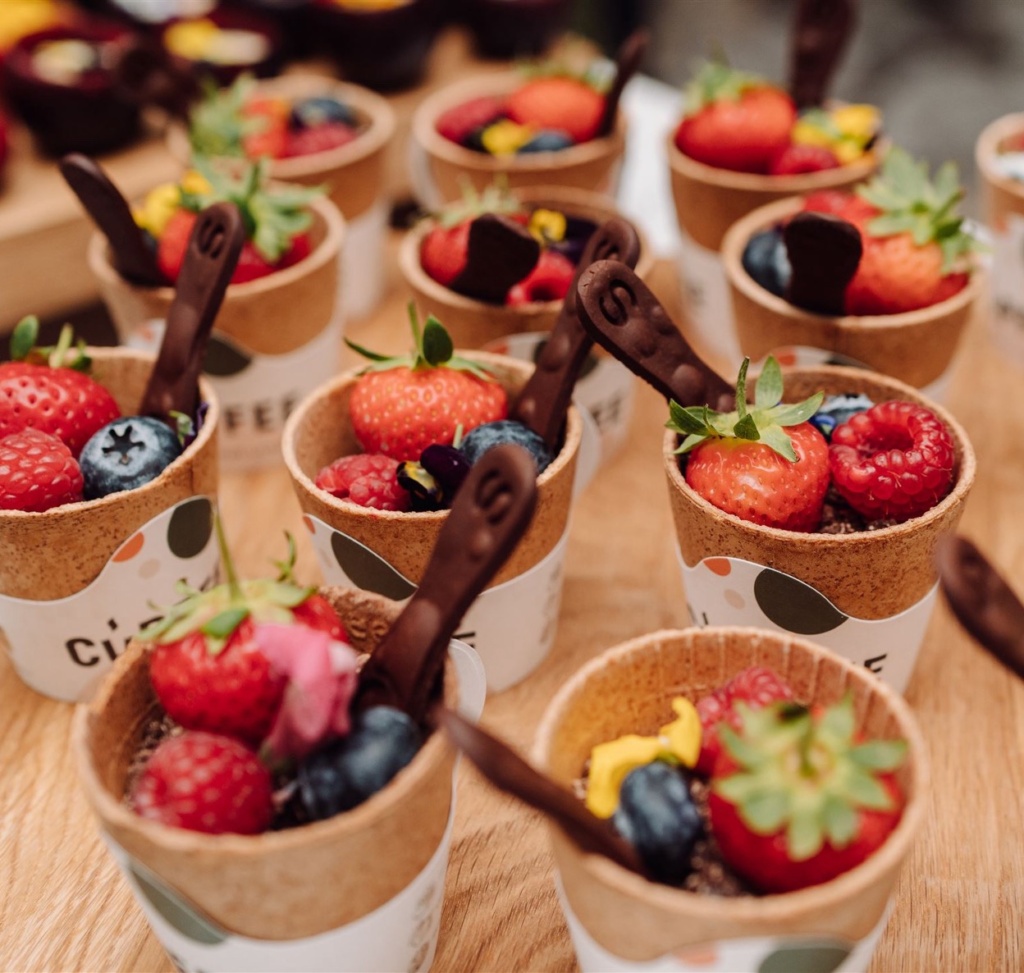
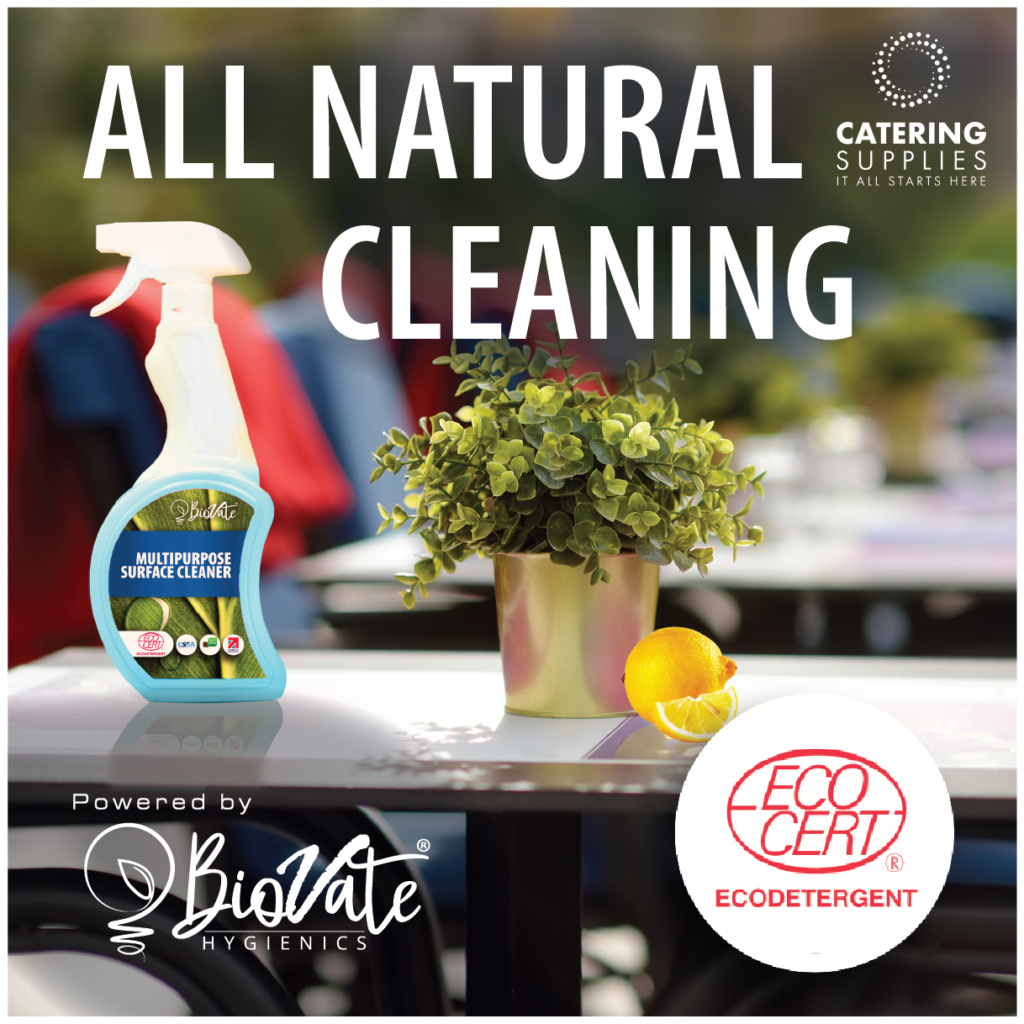
Hygiene chemicals
Let’s not forget hygiene chemicals which are used by all businesses. Remember to check empty chemical bottles as most plastic bottles can be recycled; look out for the recyclable logo! Another way to reduce consumption is to use concentrated chemicals – which means less packaging is used and can save on costs.
All of our Pro Supplies chemical own brand products are manufactured in recyclable packaging and, in addition, the packaging is made out of recycled content. As they are manufactured in the UK, it means the products have a reduced carbon footprint and environmental impact.
Another way of reducing impact on the environment is to use probiotic cleaning with bacteria and enzymes. The Biovate Hygienics range is an example of products that are formulated using this type of technology and designed to meet the needs of any business.
Biovate Hygienics our partner supplier on biologically-based cleaning products have made history as the first UK manufacturer of commercial cleaning products to achieve the prestigious Ecocert certification!
Coming back to the title of this blog – are you recycling effectively? The UK recycling infrastructure is definitely not straightforward or by any means perfect but we hope that by reading some of our solutions you can find what is right for your business needs.
The recycling infrastructure is constantly evolving, and the upcoming Simpler Recycling Legislation coming into force 31st March 2025 proposed by DEFRA UK will hopefully bring a simplified process – allowing collections of all dry recyclables (paper, card, plastic, and glass) together in one bin.
This will affect all businesses with more than 10 employees, including schools and hospitals. More guidance on this is due to come this autumn5.
We know waste management is a complex topic, we have therefore created a guide to give you an overview of the different materials commonly used in packaging and how you can drive circular principles. Read our 2024 sustainability in food packaging guide here.
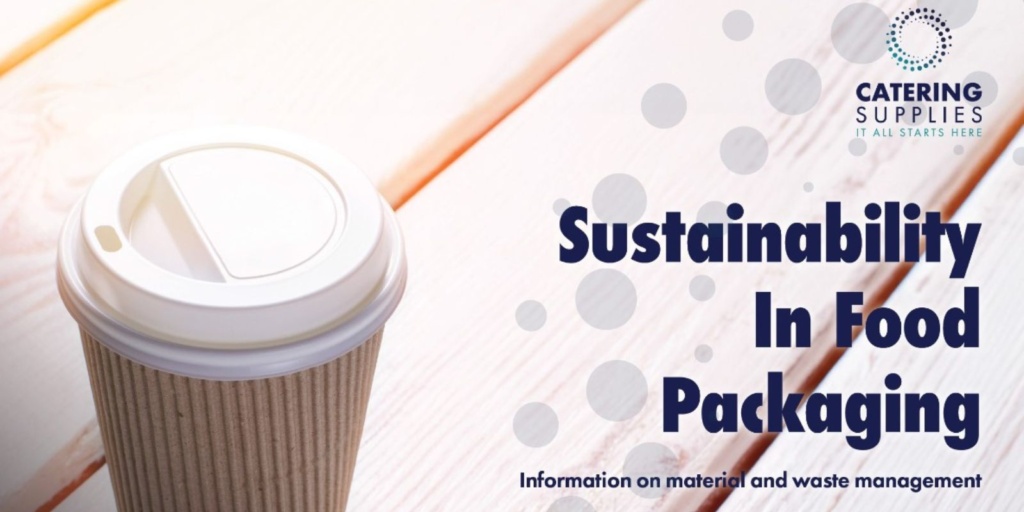
We do not have all the answers but we aim to provide product solutions that meet your waste management solutions. Contact our knowledgeable and passionate Catering Supplies Sales Specialist through your local depot or visit www.bidfoodcateringsupplies.co.uk to get more information on product solutions.
1Reconomy; 2024
2Mintel, Attitudes towards Takeaway and Delivery, UK, March 2023.
3The Independent; 2017
4Recycle now
5Reconomy; 2024
